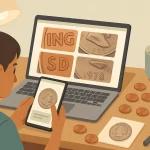Our brains are capable of remarkable feats, but cognitive decline and mental fatigue are real challenges that many of us face – it is an inevitable future that cannot be avoided, but can be postponed. Constant pressure from work, digital distractions, and daily stressors only exacerbate the strain and can leave us feeling mentally drained, forgetful, and slower to process information.
Luckily, there is a simple solution that may boost one’s mental capacity and brain’s processing speed – cognitive exercises and brain games. Among other mind-training opportunities, these seem like the most efficient and have been proven to bring measurable improvements in memory, focus, and overall cognitive health. But how exactly do they help, and which options to pay attention to? Let us see.

Benefits of Cognitive Exercises
Cognitive exercises may sound either too easy to accomplish or boring to approach. Nonetheless, they manage to combine the advantages of science with the simplicity of everyday practice. As a result, those who engage in such endeavors may notice measurable improvements in memory, focus, and other areas of cognition, which are frequently neglected when out of school or other educational institutions. Anyway, these are the main benefits that can change one’s life for good:
- Improved Memory: Strengthens short-term and long-term recall for one to remember names, dates, and details more efficiently.
- Enhanced Focus and Attention: Helps reduce distractions and improves concentration on tasks.
- Faster Cognitive Processing: Speeds up decision-making, problem-solving, and information processing.
- Increased Problem-Solving and Creativity: Encourages flexible thinking and innovative solutions to challenges.
- Strengthened Neural Connections: Promotes neuroplasticity and keeps the brain adaptable all the time.
- Reduced Mental Fatigue and Stress: Boosts mental stamina, clarity, and overall cognitive energy.
Types of Brain Games
Since the market is an extremely competitive domain, companies strive to develop new forms of brain games to make them unique, exclusive, one of a kind. Nonetheless, one may notice some unified categories, each targeting different aspects of cognition. So, what are they then?
- Memory games, i.e., activities like matching pairs, recalling sequences, or remembering lists, enhance short-term and long-term memory.
- Logic and strategy games like puzzles, chess, Sudoku, or strategy-based video games that strengthen strategic thinking, planning, and reasoning skills.
- Attention and focus games with tasks such as spot-the-difference, tracking moving objects, or reaction-time exercises that improve concentration and mental agility.
- Word and language games like crosswords, word searches, and vocabulary challenges that enhance language skills, comprehension, and verbal memory as a whole.
- Math and number games, e.g., brain teasers, arithmetic challenges, or number puzzles that sharpen numerical reasoning and analytical thinking.
- Speed and processing games, i.e., timed challenges or fast-paced games that train the brain to process information more quickly and make faster decisions.
Top Exercises & Games to Try
It is an open secret that brain exercises can help improve memory, focus, attention, and mental flexibility as a whole. However, it is vital to choose the most appropriate methods, for they can vary in effectiveness depending on the cognitive skill targeted, one’s current abilities, and the level of challenge involved.
| Exercise/Game | Target Cognitive Skills | Tips for Practice |
| Memory Card Games | Short-term memory, attention | Start with a small number of pairs and gradually increase difficulty. |
| Sudoku/Logic Puzzles | Problem-solving, reasoning, pattern recognition | Set a daily puzzle goal; try timed sessions to improve speed. |
| Crossword/Word Games | Vocabulary, verbal memory | Use different difficulty levels; try themed crosswords to expand knowledge. |
| Brain-Training Apps (Lumosity, Peak, etc.) | Attention, processing speed, mental flexibility | Follow daily exercises; track progress to stay motivated. |
| Dual N-Back/Sequence Recall | Working memory, mental agility | Begin with low levels and gradually increase difficulty for maximum benefit. |
| Speed/Reaction Games | Processing speed, decision-making | Focus on accuracy first, then gradually increase pace. |
| Strategy Games (Chess, Go, Board Games) | Planning, strategic thinking, long-term focus | Play regularly against varied opponents; review strategies to improve. |
| Math/Number Puzzles | Numerical reasoning, analytical thinking | Start with simple problems, then attempt timed challenges for a mental boost. |
| Spot-the-Difference/Attention Games | Attention to detail, visual processing | Use daily short sessions to gradually improve focus and concentration. |
Results/Benefits Noticed
Although it is a long way to see the results, the first changes may come quickly. These usually come down to the following:
- Sharper Memory: Improved recall of names, dates, and daily tasks.
- Better Focus and Concentration: Enhanced ability to stay on task and avoid distractions.
- Faster Thinking and Processing: Quicker decision-making and more efficient problem-solving.
- Increased Mental Flexibility: Easier adaptation to new situations and creative problem-solving.
- Enhanced Confidence in Cognitive Abilities: Feeling more alert and capable in professional and personal life.
- Reduced Mental Fatigue: Improved mental stamina and less exhaustion after cognitive tasks.
Your Next Steps

Now it is high time that you took action! Start by incorporating a few simple games or exercises into your daily routine and remember that consistency is more important than duration. Even a few minutes of meaningful training can make a noticeable difference over time.
Nonetheless, do not neglect mixing different types of exercises to target multiple cognitive skills at the same time. This may lead to improved flexibility and resilience in the end. Besides, so as to keep up with your improvements, track your progress, gradually increase difficulty, and try new challenges to keep your brain engaged.
It takes only 10 minutes to become a better self – changes will come, and life will be better.





